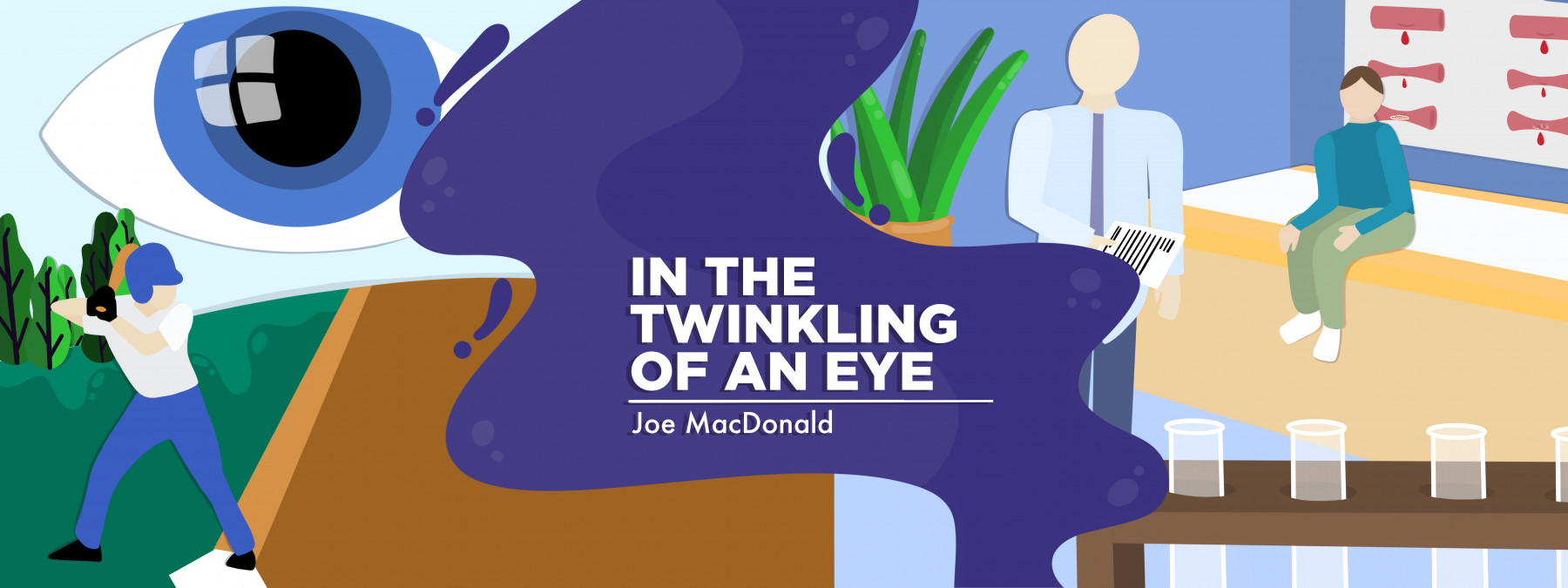A ‘Hamilton’ line made me recall my history with hemophilia
As treatments have changed, my sons have had an improved quality of life

I must admit right off the bat that I’m a big fan of the musical “Hamilton.” I saw a production of it in Chicago and felt its energy flow through my veins like lightning. The dancing was nonstop, and most of the music was upbeat with a driving rhythm. It proved easy to get caught up in the story of a flawed human, Alexander Hamilton, doing remarkable things.
As I sat in my seat, taking in the sounds of the song “The Schuyler Sisters,” the character Angelica Schuyler sang, “How lucky we are to be alive right now.” Her sisters, Eliza and Peggy, joined her in reiterations of the line to emphasize the building of hope and joy in the musical. The phrase spoke to me unexpectedly as I thought about my sons and their journeys through the world of hemophilia. I remembered how treatments changed through the years, paving the way for my sons’ current protocols.
Hearing stories of friends who lost their children during a dark time known as the “hemophilia holocaust,” we’ve felt lucky to live in a time that didn’t have these past complications. Prior generations of those with hemophilia used blood that wasn’t tested for several diseases. As a result, many people died because of contaminated blood.
The first time I attended the National Hemophilia Foundation‘s annual symposium, I couldn’t believe the event’s size and scope. People from all over the country had come together with one goal: to improve the quality of life for those with chronic bleeding disorders.
While walking through the exhibits, I noticed a room set aside. Curious, I walked in to discover a dimly lit space. Against one of the walls, candles stood atop tables. Some were lit while others waited for the right person to ignite the wick. I learned the room was sacred for those who lost loved ones during the hemophilia holocaust.
In addition to the table with candles, there was a lectern for those who wished to speak for loved ones. Anyone could come to the front and share their stories. As I sat and listened to several people, I couldn’t help but feel that their words were like melodies permeating the air. Each note expressed both sorrow and joy. The sadness affirmed the loss of life, while the happiness reminded us of the privilege of knowing those we hold dear.
The medical treatment of my oldest son, Julian, was a first-generation product when we started our odyssey. The new medicine, recombinant factor VIII, only used albumin from blood to stabilize the product. This new and innovative treatment drastically reduced the risk of hepatitis B, C, and HIV infection. Julian’s factor VIII then proved virtually risk-free of blood-borne pathogens.
Each year, the quality of life improves for those with bleeding disorders. Manufacturers developed factor VIII medications with longer half-lives, reducing the number of times a person had to infuse intravenously. In addition, Julian’s veins proved easier to access, so healing could occur between infusions.
Early in the life of my youngest son, Caeleb, medical advancement hit such great strides that the language of treatment changed. Infusing proved ancient as a new drug called Hemlibra (emicizumab-kxwh) only required a subcutaneous injection. The difference between the two treatment methods is simple. Infusing requires intravenous access, whereas injecting involves a smaller needle under the skin, without long needles seeking healthy veins.
The future of hemophilia treatment promises ways to improve my sons’ lives, and even now I can’t ignore how far medical advancement continues to shape our world. “Look around,” I say. “How lucky we are to be alive right now, at this moment.” The future for Julian and Caeleb looks bright, thanks to the teams of men and women who bring out the best in us.
So here’s a toast to where we are now. We appreciate what we have as we look toward a future with endless possibilities.
Note: Hemophilia News Today is strictly a news and information website about the disease. It does not provide medical advice, diagnosis, or treatment. This content is not intended to be a substitute for professional medical advice, diagnosis, or treatment. Always seek the advice of your physician or another qualified health provider with any questions you may have regarding a medical condition. Never disregard professional medical advice or delay in seeking it because of something you have read on this website. The opinions expressed in this column are not those of Hemophilia News Today or its parent company, Bionews, and are intended to spark discussion about issues pertaining to hemophilia.







Leave a comment
Fill in the required fields to post. Your email address will not be published.